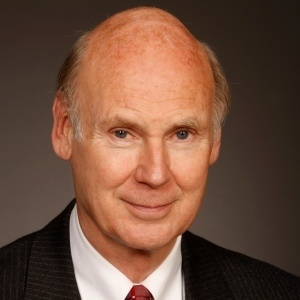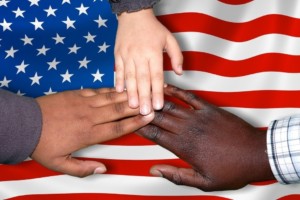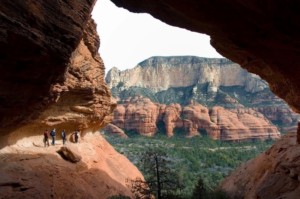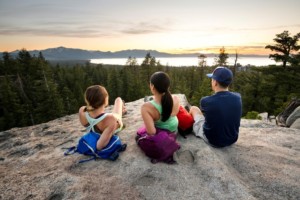How should travel & tourism respond to threats to free movement, thought?

If the United States under Donald Trump threatens freedom of movement and freedom of thought — and the businesses and livelihoods that facilitate both — what should travel, tourism, and hospitality stakeholders do? K Michael Haywood reckons industry and the academy should put aside long-standing differences.
It’s a “Good Tourism” Insight. [You too can share.]
- Democracies in decline …
- … curtailing the good in tourism
- … and the effectiveness of tourism education
- Authoritarianism is bad for business …
- … and travel & tourism’s talent pool
- Tourism education and industry relations were already under strain …
- … so it is time to come together
- What do you think?
- About the author
- Featured image (top of post)
Democracies in decline …
Democracies are in decline and governments are undermining independent sources of information and knowledge. Autonomous government agencies are being sidelined, the media are being muzzled, law firms and the rule of law are under attack, and higher education is being weakened and defunded.
The consequences and implications for tourism are more serious than previously thought and all communities (whether or not they are destinations) should be worried.
While commonly associated with authoritarian regimes, such tendencies are becoming increasingly prevalent as so-called democratic countries wage culture wars and adopt anti-liberal sentiments.
While notable in countries like Hungary and Turkey, more perplexing is what is happening in the United States. Within the former bastion of soft power and free trade an overreach of executive power is in full swing, including a multifaceted campaign against the freedoms of colleges and universities.
Read more “Good Tourism” content about places in the Americas
… curtailing the good in tourism
A rise in authoritarianism is bound to curtail the ‘good‘ in tourism; tourism that:
- encourages interaction;
- promotes tolerance;
- celebrates diverse local cultures;
- invests in infrastructure and public places;
- diversifies economies;
- supports local businesses;
- provides governments with scarce tax revenues; and
- incentivises sustainability.
… and the effectiveness of tourism education
Imagine what would happen to tourism education in your jurisdiction if the executive branch of your government:
- defunded the Department of Education;
- demonised universities and threatened to take over their governance;
- deepened distrust in science, research, and expertise;
- censored specific words;
- banned certain books;
- sought to dismantle certain academic programs; and
- pulled funding, grants, and contracts from research universities?
Chaos, undoubtedly.
Now, imagine what would happen if your government also attacked your freedom of expression and the free exchange of ideas.
Certainly, you would expect students as well as faculty members to be petrified, fearful of being a dissident.
What do you expect would be going through the minds of citizens, especially in all the institutions, organisations, and enterprises in service to and dependent on tourism?
Authoritarianism is bad for business …
The rise in authoritarianism in the United States is resulting in declines in visitor arrivals, boycotts, and the exclusion of visitors from a host of countries, as well as:
- new visa requirements;
- skepticism regarding freedom of movement;
- lack of receptivity to certain ethnic groups;
- arbitrary detainment of some visitors; and
- fear of deportation (perhaps to jails in El Salvador).
That’s not to mention a host of unintended consequences emanating from chaos and uncertainty, including the loss of tourism revenues and subsequent job losses.
As the United Nations’ World Social Report 2025 reveals: “Economic insecurity, staggering levels of inequality, declining social trust and social fragmentation are (already) destabilising societies worldwide”; problems exacerbated by self-imposed and inflationary trade wars among friends and foes alike.
While many industries will suffer the consequences of these tariffs and re-alignments for years to come, travel & tourism is bound to bear a heavy burden as individuals and households willingly sacrifice nice-to-have vacations (even staycations) for need-to-have, safeguarded reserves for high priority items: health, food, education, and housing.
… and travel & tourism’s talent pool
Add into the mix travel & tourism workers, who were already feeling undervalued and under-supported. They too remain noticeably absent.
From air traffic controllers to restaurant workers, housekeepers to tour guides, front desk to head office, labour and talent shortages are stark in the United States as elsewhere.
Sure, the deportation of immigrants is partly to blame, but generally speaking the travel, tourism, and hospitality sectors have under-invested in education and training.
Tourism education and industry relations were already under strain …
No one can deny how important training, education, and vocational and educational institutions are to tourism, yet I contend that the relationship between tourism education and the tourism industry was and remains strained (based on work I conducted with a colleague more than 30 years ago and my radical proposal for hospitality and tourism education).
That relationship is likely to become even more aggravated given the tenor of the time and the extreme pressures facing colleges and universities; issues ignored in the most recent editorial for the Journal of Hospitality & Tourism Education, “Looking into Hospitality and Tourism Education in the 2030s”.
Read more “GT” content tagged tourism education & training
… so it is time to come together
While academia’s insularity and estrangement from the real world has been problematic for ages, now is the time for every stakeholder involved in the travel, tourism, and hospitality industries to come together and relearn how to cooperate and, more importantly than ever, ensure that the Global Code of Ethics for Tourism be applied and upheld.
It is up to us to put democracy into action.
The impact of politics and tourism (explored more here) has never been more profound: From “travel policies and regulations to economic stability, image perception, and international relations, politics shape the opportunities and challenges facing destinations and businesses in the global tourism landscape”.
Answers to a multitude of problems related to development, employment, and economic growth, and the health, safety, security, and well-being of people and the planet require ongoing resolution. This necessitates further study and research; study and research that is understandable, relevant, and applicable.
Read more “GT” Insights by K Michael Haywood
To this end, efforts to restore a sense of balance and trust are essential. It helps to clarify and understand the purpose of tourism, the goals to be attained and why they matter.
Once people are on board, conversations need to take place about the work to be done, how best to coordinate among stakeholders, make decisions, provide feedback, shift course if necessary, and celebrate jobs well done.
In essence, people need to be contributing and listening. Both advocacy and inquiry need to be present. Mutual learning, respect, and progress must be in evidence.
To maximise real and perceived value for all stakeholders, it is critical to put democracy back into action. But first, it must be built into businesses and communities through educational processes, engagement, and participation.
To stop the backsliding processes at work in our societies, those of us involved in travel & tourism — the academy, the industry, and its institutions — are obliged to inform citizens about the damage being done, forge coalitions, broaden their appeal, and enhance the resilience of civil society.
That, I believe, is ‘good tourism’ at work!
What do you think?
Share your own thoughts in a comment below on how travel & tourism stakeholders might leverage awe. (SIGN IN or REGISTER first. After signing in you will need to refresh this page to see the comments section.)
Or write a “GT” Insight or “GT” Insight Bite of your own. The “Good Tourism” Blog welcomes diversity of opinion and perspective about travel & tourism, because travel & tourism is everyone’s business.
“GT” doesn’t judge. “GT” publishes. “GT” is where free thought travels.
If you think the tourism media landscape is better with “GT” in it, then please …
About the author
K Michael Haywood is Professor Emeritus, School of Hospitality, Food and Tourism at the University of Guelph in Ontario, Canada.
“As a former professor and consultant to the hospitality and tourism industries, I now host the Destinations-in-Action blog on substack from my Tourism Studio.”
Michael has also written for The “GT” Travel Blog.
Featured image (top of post)
Protest outside Trump building in Chicago in 2018. Image by Rob Walsh (CC0) via Unsplash. “GT” cropped it and added the question.






